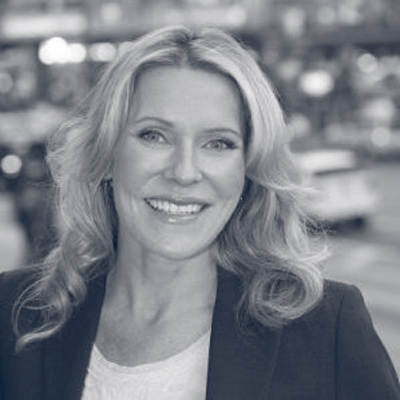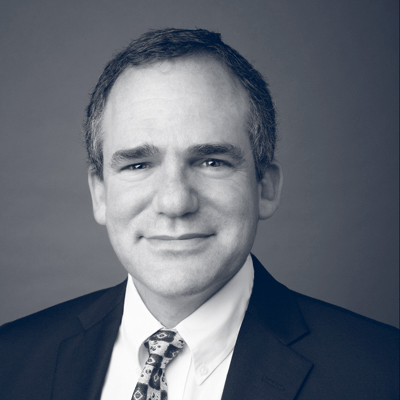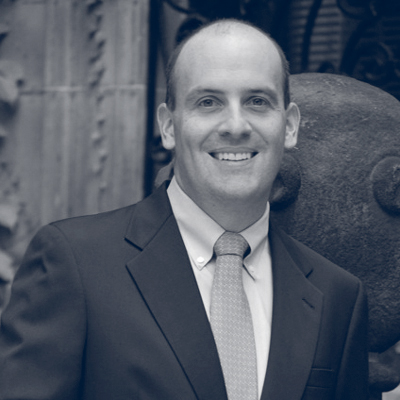Topics
MIT SMR Strategy Forum
We asked our panel of strategy experts to tell us how strongly they agree with the following:
U.S. regulations have been rolled back in a number of areas, including emissions standards and clean water. Companies will decide to voluntarily adhere to rules that closely resemble the original standards.
■
Raw Responses
■
Responses weighted by panelists’ level of confidence
The deregulation agenda in the Trump era has been wide ranging and ambitious. Some rollbacks have sparked a divide in affected industries, and notably, many major energy companies, automakers, and other industrial giants have opposed new initiatives that would accelerate the effects of climate change.
Panelists
| Panelist | Vote | Confidence | Comments |
|---|---|---|---|

|
Strongly Disagree | 8 | “If firms didn't want to roll back standards, they wouldn’t have hired lobbyists to get the standards weakened.” |

|
Neither Agree nor Disagree | 8 | “Some firms will voluntarily adhere to rules that reflect the old standards; others will not. Those that will not will gain advantages in some areas but also risk losing customers, employees, and othe...r stakeholders in the process.”Read More + |

|
Agree | 4 | “Having invested in product and process designs to meet the original standards, many firms are unlikely to change.” |

|
Neither Agree nor Disagree | 8 | “I think there will be considerable diversity, with some firms taking advantage of the relaxed standards to shift their activities in that direction, while others will choose to adhere to the prior st...andards based on beliefs of subsequent regulatory shifts and broad macro trends.”Read More + |

|
Disagree | 7 | “Pollution is a classic example of an externality: The costs are paid by others. Therefore, firms don’t have a direct economic incentive to reduce pollution. That justifies intervention, e.g., via gov...ernment regulations. In some cases, executives will do the right thing anyway — because of their own values or public pressure — but those levers generally fall short of creating the optimal reductions.”Read More + |

|
Agree | 7 | “Consumer-facing firms will increasingly comply with standards voluntarily. Consumers — especially younger consumers — are deeply concerned about the environment. Protest movements across the globe, n...ot to mention the popularity of the Impossible Burger, show a willingness to pay more for environmentally sustainable products.”Read More + |

|
Disagree | 7 | “Many firms will save money by (rationally) not keeping to the previously tougher regulations.” |

|
Disagree | 8 | “It is unlikely they want to pollute more if there is no enforcement. To be sure, if they expended fixed costs to adhere, maybe little will change. But operationally, their incentives will be diminish...ed.”Read More + |

|
Neither Agree nor Disagree | 7 | “Many executives will want to stay with the old and tougher rules. But competitive pressure from rivals who take advantage of the eased regulations will push them backward on this issue. Net effect: S...ome will regress and some will not.”Read More + |

|
Disagree | 8 | “Self-regulation is more effective when it is proposed as a replacement for in-force regulations or when the regulators do not possess sufficient technological expertise. In contrast, after a rollback..., even good-faith efforts to preserve standards will be watered-down and very susceptible to defection.”Read More + |

|
Disagree | 9 | “Firms don’t generally do things voluntarily that are costly for them. In many cases, market competition keeps firms from unilaterally undertaking costly environmental protections, even if they wanted... to. Sometimes, as with fuel economy, firms themselves benefit from adopting something that is good for society also. In general, though, firms need to have rules that constrain everyone the same.”Read More + |

|
Strongly Disagree | 10 | “Some well-established firms that have already invested in the equipment and processes to adhere to the original standards will, but many will not. Regulations exist precisely because most firms don’t... voluntarily self-regulate.”Read More + |

|
Strongly Disagree | 10 | “Why exactly would they do that? To increase their costs and become less competitive? Pollution is a negative externality, and reducing pollution raises a firm’s cost of production. For each firm indi...vidually, it’s best to save those costs, pollute away, and let others pay to save the planet. That’s why we need rules to limit emissions and protect clean water.”Read More + |

|
Disagree | 7 | “A few high-profit firms will decide to meet or even exceed historical standards. Others will not change their processes right away. But over time, most firms will not expend additional resources to m...eet standards they are not required to meet, and [they will] blame their rivals. After all, we have seen firms, in fact, cheat and not meet standards, to save money.”Read More + |

|
Disagree | 5 | |

|
Disagree | 9 | “There will be a huge variation in firms’ responses.” |

|
Strongly Disagree | 9 | “Voluntary compliance puts firms at a competitive disadvantage, absent some coordination device like an industry standard. State law can also play a crucial role, as California has shown.” |

|
Neither Agree nor Disagree | 3 | “It is a good question, but I think it will vary by sector (a lot!). For those with long cycles and global markets (e.g., autos), they will likely sustain regulation in anticipation of future standard...s. Where firms have opportunity for transitory advantage or irreversibility (e.g., mining), [we are] much more likely to see exploitation of weakness standards.”Read More + |

|
Disagree | 7 | “In some areas, firms will not hesitate to take advantage of relaxed environmental rules — e.g., if allowed, oil firms will drill anywhere, and pristine wildlife will not deter [them]. In some areas,... firms recognize the myopia of giving in, and prefer to hold the line — e.g., that seems to be happening in autos.”Read More + |

|
Disagree | 8 | “By and large firms are bound to maximize shareholder value, and as such, will aim to maximize free cash flow subject to regulatory constraints. With constraints being removed, firms will have every i...ncentive to avoid adhering to rules that hamper their ability to increase free cash flow.”Read More + |

|
Agree | 8 | “The auto companies clearly want to stick with a uniform (and more stringent) rule. Despite the DOJ’s threats, they should have antitrust liability under Noerr-Pennington, so I see California succeedi...ng with auto emissions. I’m less informed and more worried about clean water, so it’s just ‘Agree’ instead of ‘Strongly Agree.’”Read More + |

|
Neither Agree nor Disagree | 7 | “Firms will vary greatly. Some big [multinational corporations] (e.g., automakers) will voluntarily abate at close to previous standards: They have sunk investments, expect regulations to be reinstate...d once Trump is ousted, and think about international rules, too. Smaller, myopic, domestic firms may try to cut costs by polluting more while they can.”Read More + |
About the MIT SMR Strategy Forum
Questions of strategy are universal: Every business leader must tackle a topic that’s central to how and why organizations compete. The MIT Sloan Management Review Strategy Forum offers a regular glimpse into the minds of academic leaders who have been researching and observing how businesses determine their strategy for decades.
Each month, the MIT SMR Strategy Forum poses a single question to our panel of experts in the fields of business, economics, and management. Panelists are asked to agree or disagree with a prediction, indicate their level of confidence, and provide a brief explanation for their response.
This page allows readers to engage with the results of each survey. You can see the share of panelists who agree or disagree with each prediction, how confident they feel about their answers, and the thinking behind their responses. To explore individual panelists’ thought processes about each question, click through to their voting history page. Readers can also submit their own suggestions for future topics to smr-strategy@mit.edu.
Forum Chairs
Raffaella Sadun is a professor of business administration in the Strategy unit at Harvard Business School. Professor Sadun’s research focuses on the economics of productivity, management, and organizational change. Her research documents the economic and cultural determinants of managerial choices, as well as their implications for organizational performance in both the private and public sectors (including health care and education). She tweets @raffasadun.
Timothy Simcoe is an associate professor of strategy and innovation at Boston University’s Questrom School of Business.




